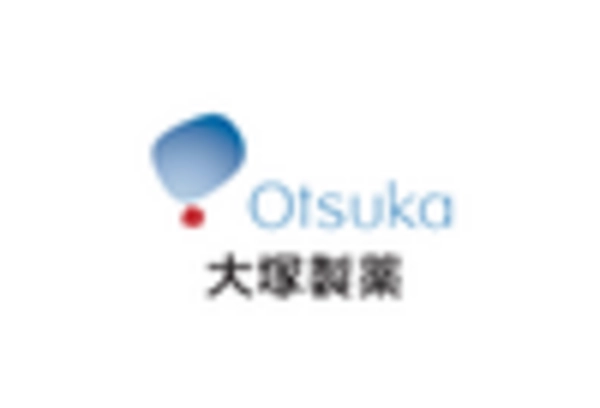Market Analysis
In-depth Analysis of Electronic Pill Market Industry Landscape
The Electronic Pill Market is developing rapidly as digital health choices increase. Electronic pills, also known as smart pills or digital ingestible sensors, combine medicine with digital monitoring to ensure patients take their medication and provide relevant health information. Enhancing medication retention affects the market. Electronic tablets feature sensors that record when patients take their prescription, providing real-time feedback on their treatment plan. This technology simplifies long-term sickness management for patients and clinicians. The growing importance of online patient monitoring shapes the industry. Electronic pills allow physicians to remotely monitor patients' medicine use and bodily reactions. Long-term sickness patients benefit from this feature since it simplifies preventive activity and individualized treatment strategies. In conjunction, IoT and smart medicines may significantly impact markets. These smart medications can communicate data immediately to connected devices, making doctor and guardian conversations easier. This combination makes smart pill real-time data more accessible and helpful. Clinical trials are using electronic pills more and more, revolutionizing medication development. This technology lets researchers monitor drug adherence and body reactions. This helps them understand medication efficacy and patient response. This app influences the pharmaceutical industry's electronic pill choice. Sensor technology improves constantly, making the market unique. Tiny sensors on electronic pills detect swallowing and relay information. Sensor technology is improving, making smart pills smaller, more precise, and more feature-rich. Important market trend: data security and patient privacy concerns are developing. Electronic tablets transmit confidential health information, requiring rigorous security measures. Getting consumers to trust and adopt smart pill technology requires following data safety standards. Patients gain authority by managing their own health using electronic medicines. The technology stimulates patients by showing them their treatment progress in real time. This patient involvement is key to the market. Smart pill cost and economic considerations affect market movement. Electronic medications are costly and have rigorous reimbursement requirements, so healthcare institutions are sluggish to employ them despite their advantages including increased adherence and online monitoring. Legal changes affect the market as electronic medicines undergo clearance and comply with healthcare legislation. Regulatory organizations evaluate electronic pill data for safety, efficacy, and privacy. This influences market entry, product development time, and industry norms. Electronic pills are being integrated into consumer electronics and health equipment. Combining health data gives a more complete picture of a patient's health. The market is evolving due to how effectively electronic medicines combine with other health tech. Patients must learn about and adopt electronic medications, changing the industry. Healthcare experts are crucial to educating consumers about this technology's merits, downsides, and privacy concerns. Patient acceptance of electronic medications is crucial for their medicinal usage.


















Leave a Comment